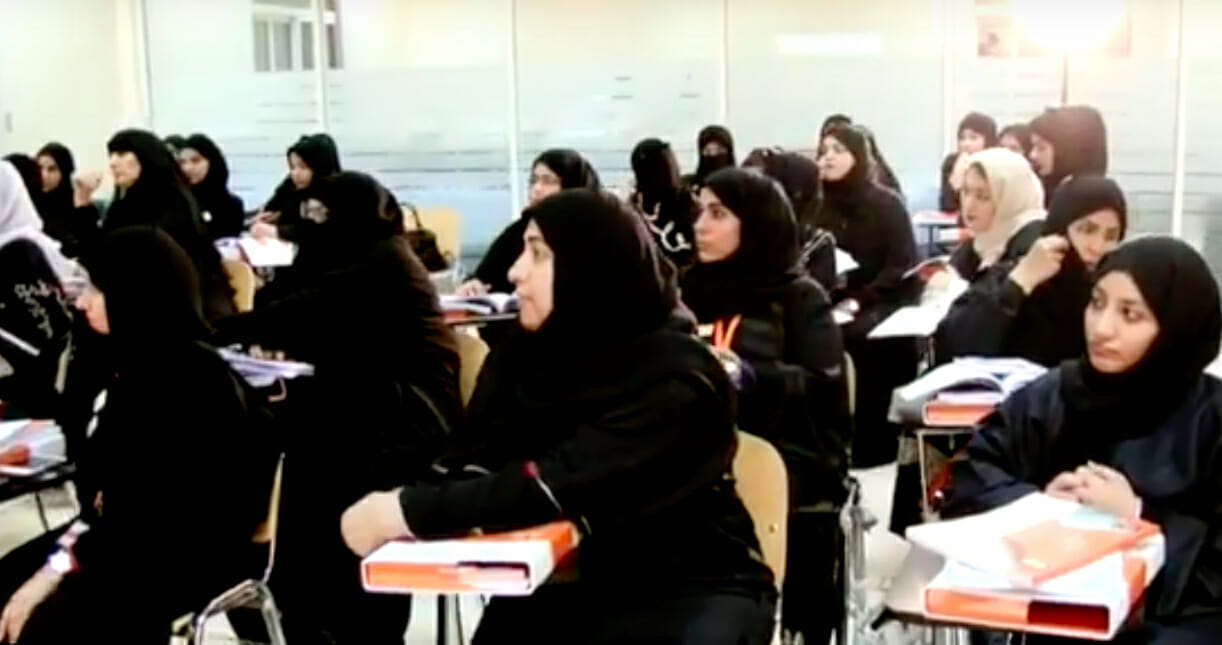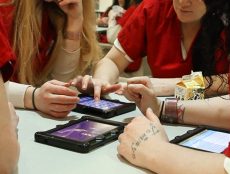
Interviews
Mawi Asgedom Says the Key to English Learner Success Is Confidence and Empowerment
By Henry Kronk
December 08, 2017
Mawi Asgedom came to the U.S. at a young age and learned English in the American education system. Now, he runs Mawi Learning, a company that works with students and instructors in both ELL and Gen Ed. Asgedom currently has a book out, co-authored by Dr. Johanna Even, titled Empowering English Learners for Classroom Success.
Henry Kronk: Could you briefly say your background in English learning and how you came into the field?
Mawi Asgedom: Absolutely. I’m originally from Ethiopia and there was a war going on for thirty years. My family became refugees and I came to the United States as an English learner. I started first grade when my family resettled. So my primary experience is in school, trying to adjust to the U.S. Eventually what happened is I was able to speak fluently. My grandfather told me that education was the way to opportunity in this country. I was eventually able to get a scholarship to Harvard University and I graduated from there. After I graduated, I always remembered my experience as an English learner and how difficult that was, how I felt isolated at times, or like you couldn’t do as well as the other kids. So I’ve had a lifelong passion to support the education of English learners and gen ed kids.
HK: Bring me through the process of how Mawi Learning got started.
MA: When I graduated from Harvard, I remember one of the graduation speakers saying, “Here at Harvard, we go into every field known to man: every field from investment to banking.” There’s a huge pressure for you when you graduate to go work for a big investment firm or something like that. I’d had this experience in high school where I was lucky enough to get what we call now ‘social-emotional’ training. I learned how to have a growth mind-set, I learned how to hit my turbo button, and I developed a passion for leadership. After I graduated from school, I said, that’s what I want to do with my life. I want to help other kids grow as I did, develop positive mindsets, and make it so that any student from any background can be able to go on a journey of growth and success in this country. That’s what Mawi Learning has done for the past 20 years. We do that through professional development for teachers, through books, through online courses for students and teachers as well. We work with districts all over this country.
HK: I heard you mention the term ‘social-emotional’ learning back there, and that’s also a big topic in the book you have out. Could you explain what that means a little bit more?
MA: It’s pretty funny. In our country, most people agree that things like reading and writing and math are important. But there’s another aspect of education that surrounds mindset,  like grit, and character. We’ve struggled as a country to come up with a term to describe what we mean by the sum of internal resources and attitudes that a human being cultivates and develops and accesses to pursue their dreams and create a great life. The term that is dominant in education right now is ‘social-emotional’ learning, and it’s a combination of mindset, habit, and things like that. That’s what we really specialize in at Mawi Learning.
like grit, and character. We’ve struggled as a country to come up with a term to describe what we mean by the sum of internal resources and attitudes that a human being cultivates and develops and accesses to pursue their dreams and create a great life. The term that is dominant in education right now is ‘social-emotional’ learning, and it’s a combination of mindset, habit, and things like that. That’s what we really specialize in at Mawi Learning.
HK: I understand that Mawi Learning conducts education for ELL learners and instructors as well—lots of conferences and workshops—but you guys also have a large online component. Could you describe what you guys offer for distance learners and educators?
MA: We always start with assets. Students have incredible assets regardless of their situation or background. We offer our asset-based philosophy through not just our online courses, but our books and in-person conferences. I feel like we’re on the cusp as a country to be able to personalize education and growth for English learners in really powerful ways. What we do with our online courses—which have been taken by over 50,000 students for credit—is help our learners develop that mindset of success, and to help them be proud of their culture and their background. When I first came to this country, I was ashamed of being Ethiopian, I wanted to be just like the other kids, and I didn’t respect my background. Our courses take students on this journey to help them grow their confidence and apply that to their studies. With our online program, you can create courses that are specific for different English levels.
The other side of it is we do a virtual certification with every educator we work with. We focus on specifically how to build mindsets and attitudes and confidence with their students. We’ve found that the best way to help students is to start with the educator, and to get educator fueled up. That’s what we’re trying to do with our latest book: help educators inspire and empower English learners.
HK: There’s a lot in the new book about different pedagogies, teaching philosophies, and outlooks. Could you go over some major points there?
MA: Sure. One thing that I talked about earlier today is, when you approach English learners, it’s really easy to have a negative mindset. When I first came to this country, I couldn’t speak English. My father was legally blind and it was very hard for him to work. I almost got expelled from first grade. You could focus on all these negative aspects, or you could focus on my strengths and assets. I could already speak two languages in first grade. I knew how to play soccer, which was a great asset that helped me make a lot of friends. My family really believed in education. Between sixth grade and eleventh grade, I didn’t miss one day of school. Every single English learner could make a list of their deficits or make a list of their assets. We always start by asking how an English learner’s assets are going to help them in this country.
From there, we offer six keys that will help students succeed. One is in the mindset area where we talk about growth mindsets and what we call ‘turbo’ at Mawi Learning. We help challenge instructors to establish meaningful relationships with kids. Finally, we look at a couple specific skills, such as coping methods with English learners who have suffered trauma. We also look at language acquisition skills. What we try to do is provide educators with simple but power tools that will allow them to have an impact on any English learner.









No Comments